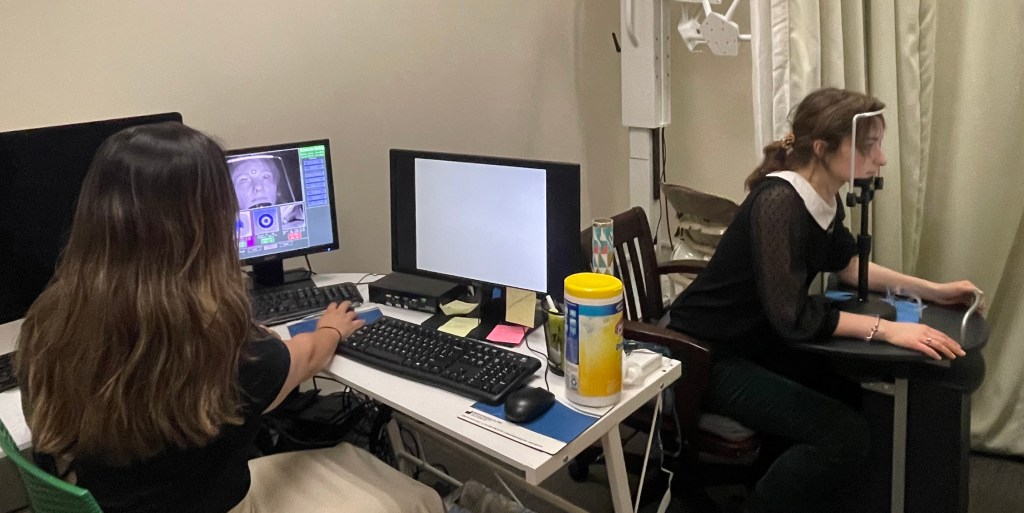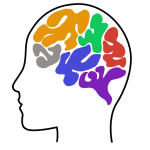We are always excited to welcome new talent into our lab! Read below about our opportunities for student trainees at various stages of their careers and from differing backgrounds. We value diversity and strive to increase the representation of women, LGBTQ+ individuals, and students from diverse racial, ethnic, cultural and socio-economical backgrounds in research.

Graduate Students
Thank you very much for your interest in my lab and the Cognitive Neuroscience Program at GWU. For more information on the overall program, training model, and application information, please click here.
Are you accepting students for the upcoming academic year?
I am most likely not taking graduate students in the Fall 2025.
What are the current projects in your lab in which graduate students can become involved in?
Graduate students are involved in the general research topics and projects in the lab. Please read about current projects here and our broader research topics and frameworks here. Having said that, as a mentor I strongly believe in developing independent interests and projects over the course of the program. I strongly encourage students to develop their own questions and hypotheses and test these in the context of existing projects and in independent projects.
Do you interview candidates?
I am interviewing candidates that have applied to the program during the designated selection period. I will interview a short list of finalists over the phone, and then a smaller number will be invited to meet the entire faculty and graduate student cohort of our program. I am also happy to meet prospective students before the application deadline and discuss the potential fit of their interest with my lab and the broader program.
What are you looking for in a prospective graduate student?
Graduate students should have knowledge of and a strong interest in the research conducted in the lab and show the motivation and willingness to conduct independent studies. Competitive students will likely have previous research experience and (preferably) have conducted independent research project(s) such as an honors thesis, a conference poster, or published paper. Experience working with clinical groups and with pediatrics populations is a plus but not a prerequisite. Prospective students should have basic knowledge of research methods and programing skills are very useful but not a requirement.
What is your mentoring style?
I value collaboration and open communication with my mentees. I would describe my mentorship style as hands-on at first. Graduate students work on current projects in the lab and discuss their project progress in weekly meetings. Meetings often involve analyzing data together and discussing results. Every two weeks, the meetings involve more general career mentorship. I like to connect students to other lab members and to colleagues within the field and I am strongly encouraging of cross talk and joint projects within and beyond our lab and program. I expect students to show a high degree of motivation and commitment to their research and a strong willingness to become more independent over the course of the program. I expect students to generate independent questions and projects towards the end of the program. I value scientific independence and view it as a crucial goal of graduate school.
Undergraduate Internships
The DSN Lab has developed an internship program for course credit (PSYC3591 or PSYC4591, 3 credits). Internships can count towards the elective requirement of all majors that are offered in the department of Psychological and Brain Sciences and also meets the advanced lab requirement of the Cognitive Neuroscience major specifically. No prior research experience is necessary but exposure to research and work with clinical populations and/or children is highly valued. Read more about funding for these research opportunities here .
What is the structure of this program?
Interns work for a full semester in the lab. As for a 3 credits course, students are expected to devote 8-10 hours a week to their internship (typically divided over 2 or 3 weekdays). Students are expected to have some overlap with fellow interns and their internship advisors during their time in the lab and to participate in lab events, such as regular weekly lab meetings.
What kinds of work do interns do?
Interns perform various supervised task from simpler recruitment tasks to running more sophisticated data collection and analysis protocols. Interns receive extensive trainings in order to complete these tasks and are expected to actively connect with peers and mentors during their internships. Sometimes internships may culminate in ideas for independent research projects, which can be started as part of the internship and extended into separate fellowship programs.
How do you apply?
Interns are recruited one semester in advance. If you are interested in being considered for the upcoming semester, please reach out to us to be considered.
High School Internships
Our research focusses on adolescence, an important developmental period, and what better way to learn about adolescence than to learn with and from adolescents?
Each semester, the DSN Lab takes up to two high school students as interns for a structured 8-week program during the academic school year. This internship is intended to expose students to research in clinical psychology and cognitive neuroscience, and to research methods in these fields. No prior research experience is necessary. If you are interested, please be sure to talk to your advisors at your respective schools about ways to structure this opportunity around your school work.
What kinds of work do interns do?
The internship is designed to expose students to key aspects of the research process. Internships start with a number of trainings including human subjects research training, consenting, and running research visits. Students will participate in research, give feedback on research projects, assist with recruitment, data collection, and be introduced to data analysis routines.
How do you apply?
If you are interested, reach out to us here. We will work with you and your high school to come up with a suitable schedule for this internship. Please note that we only consider candidates interested in in person work.
